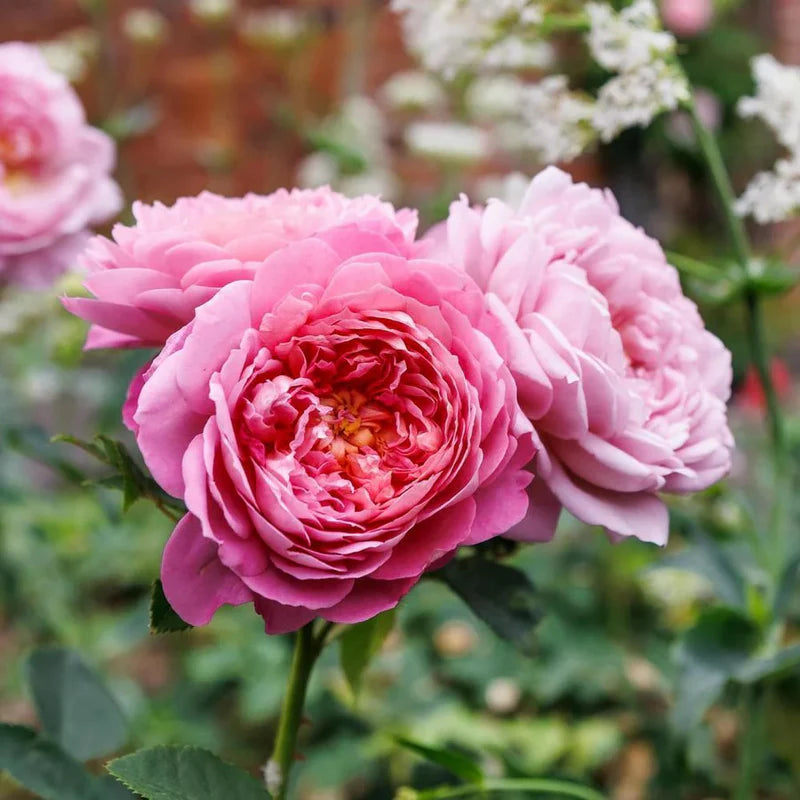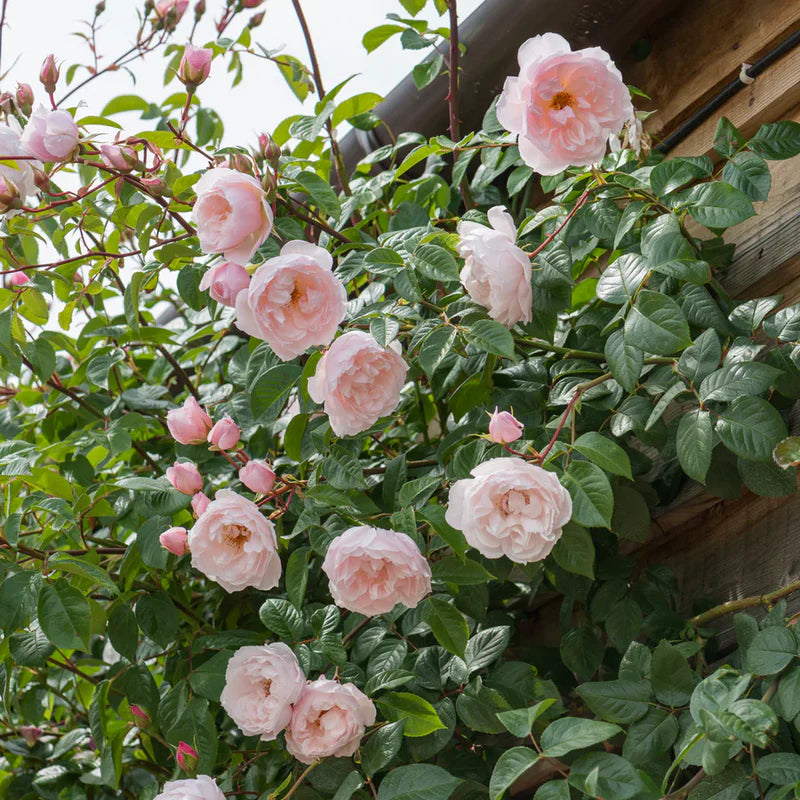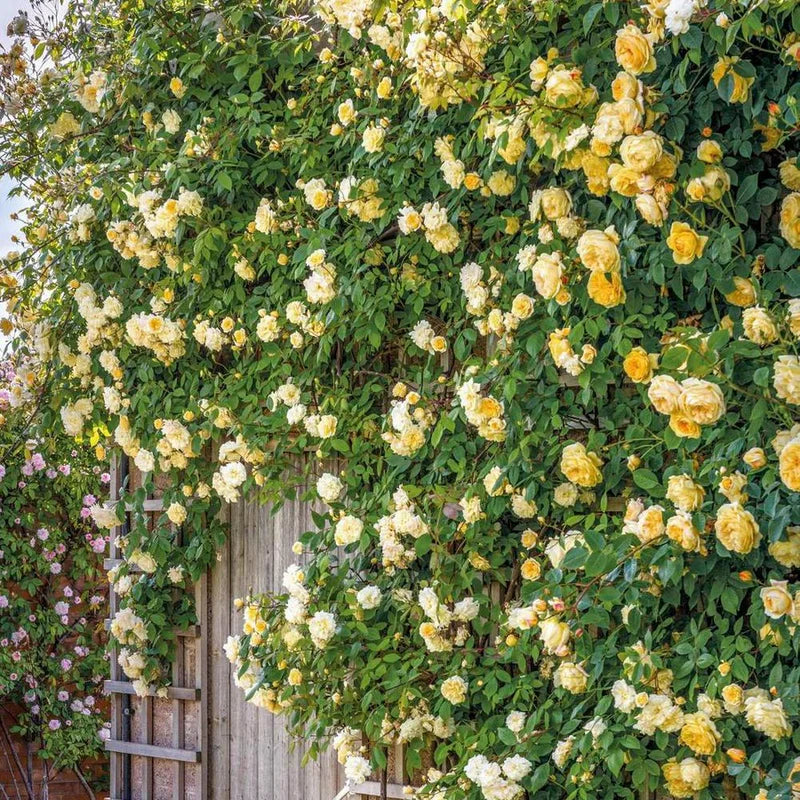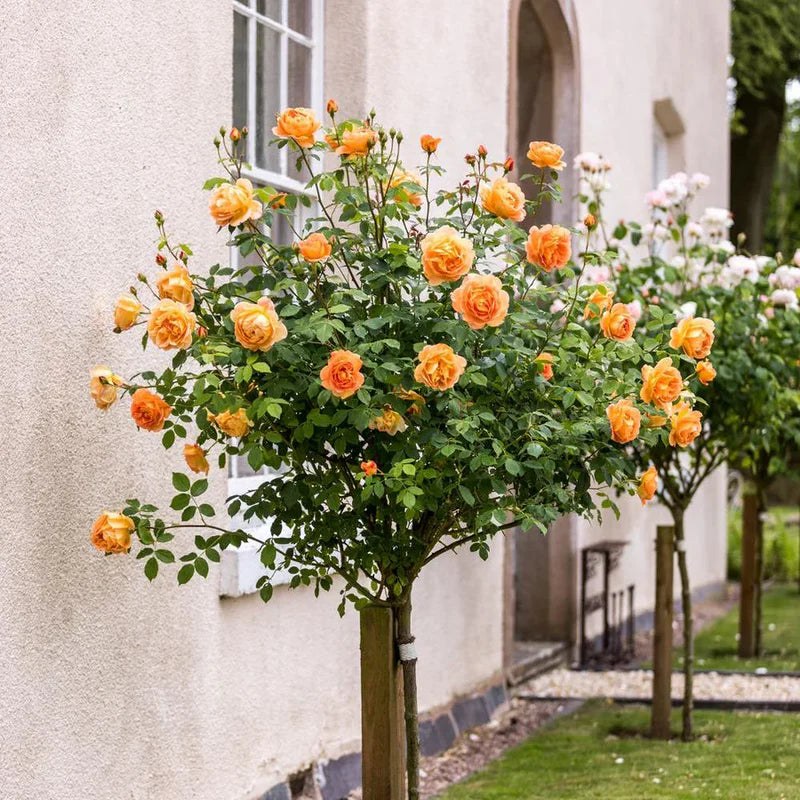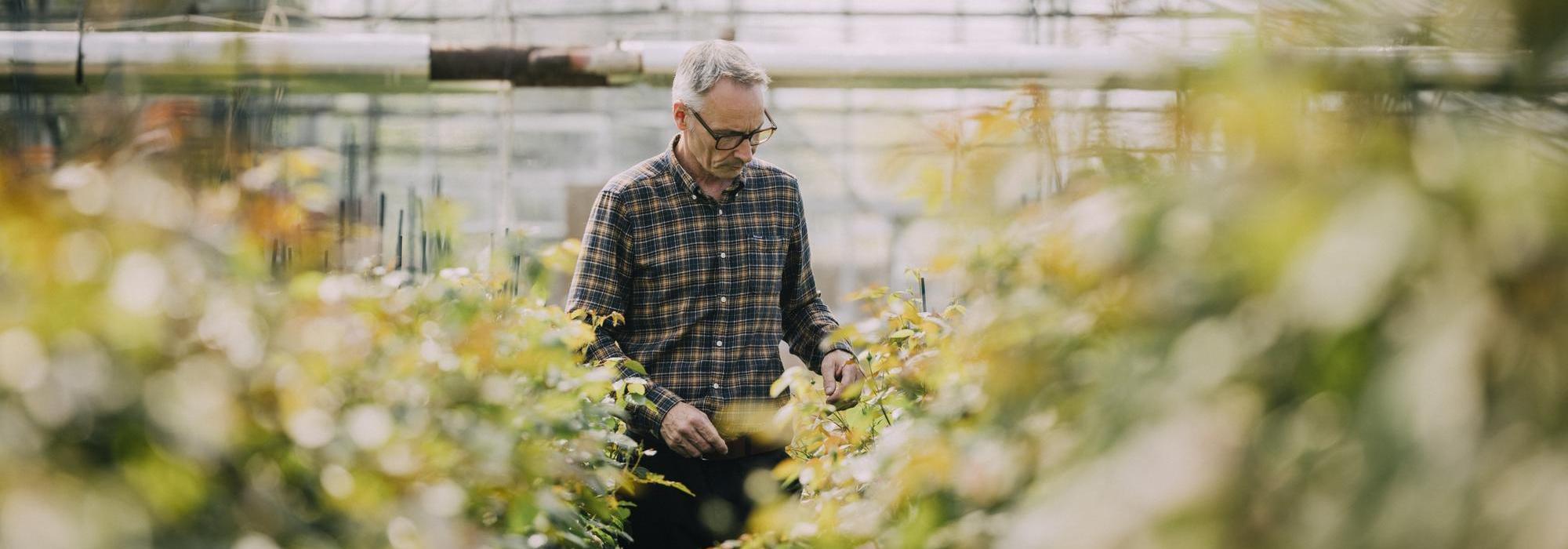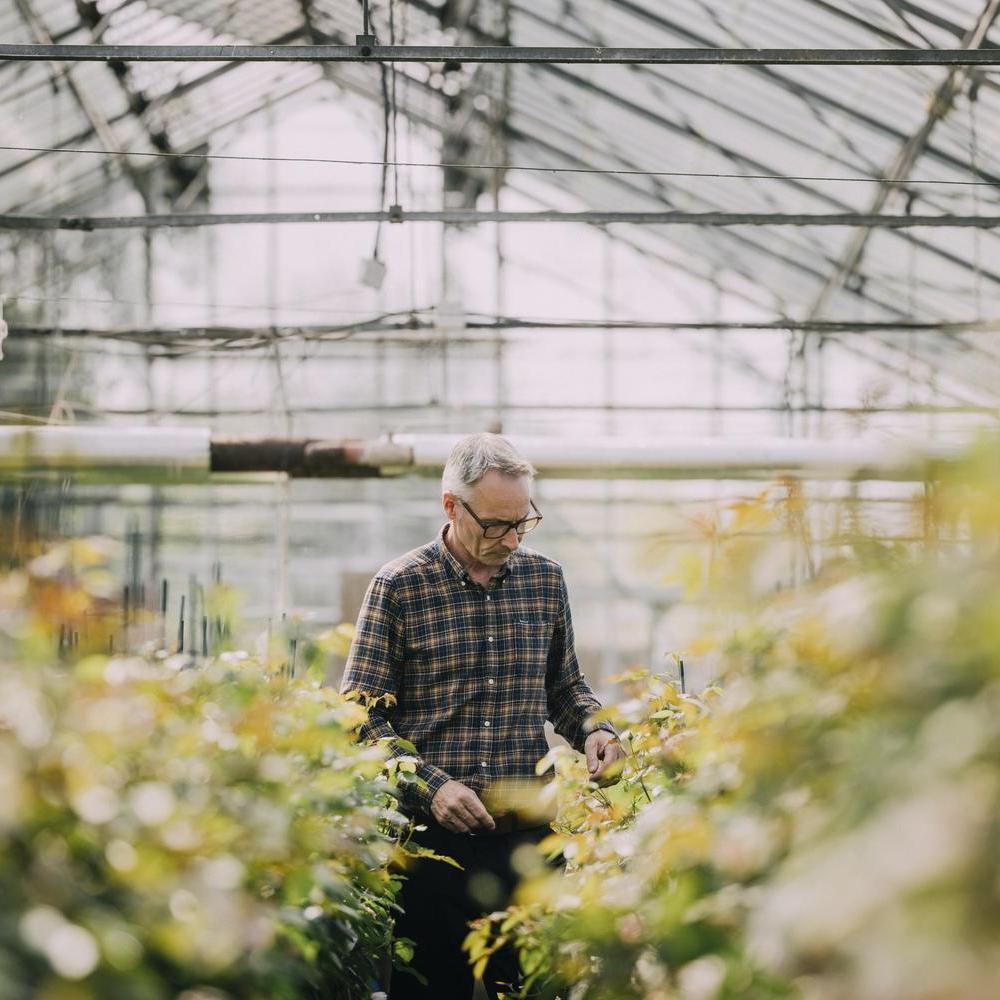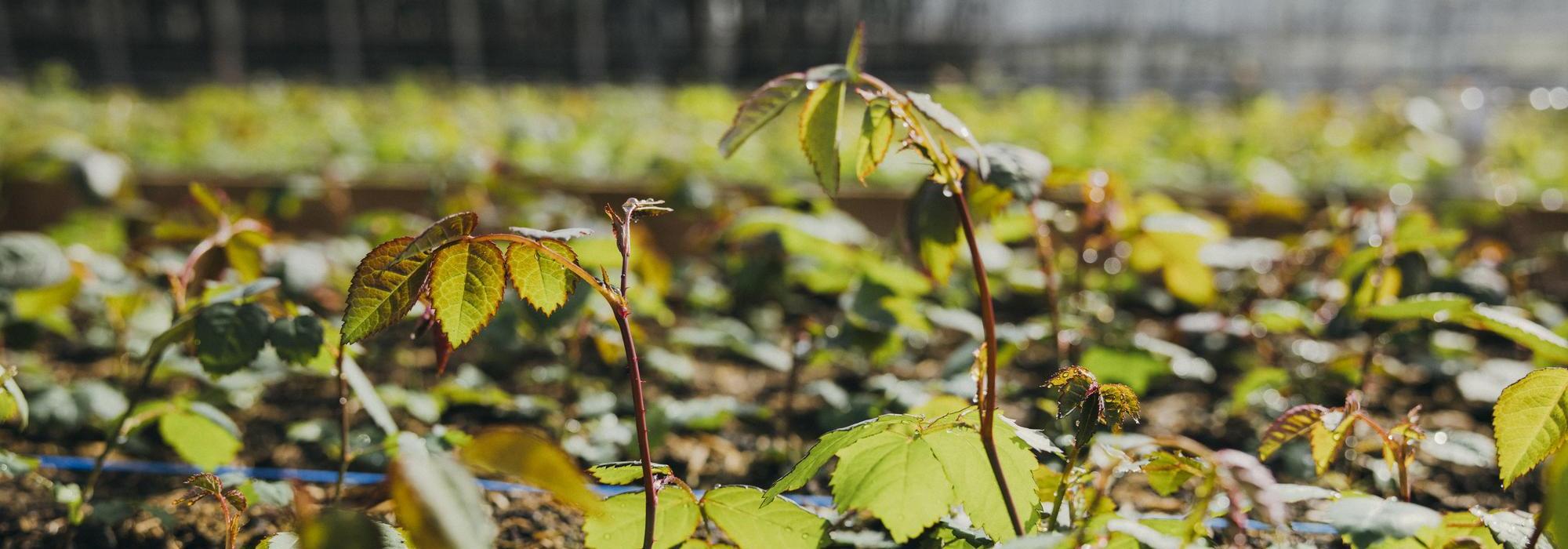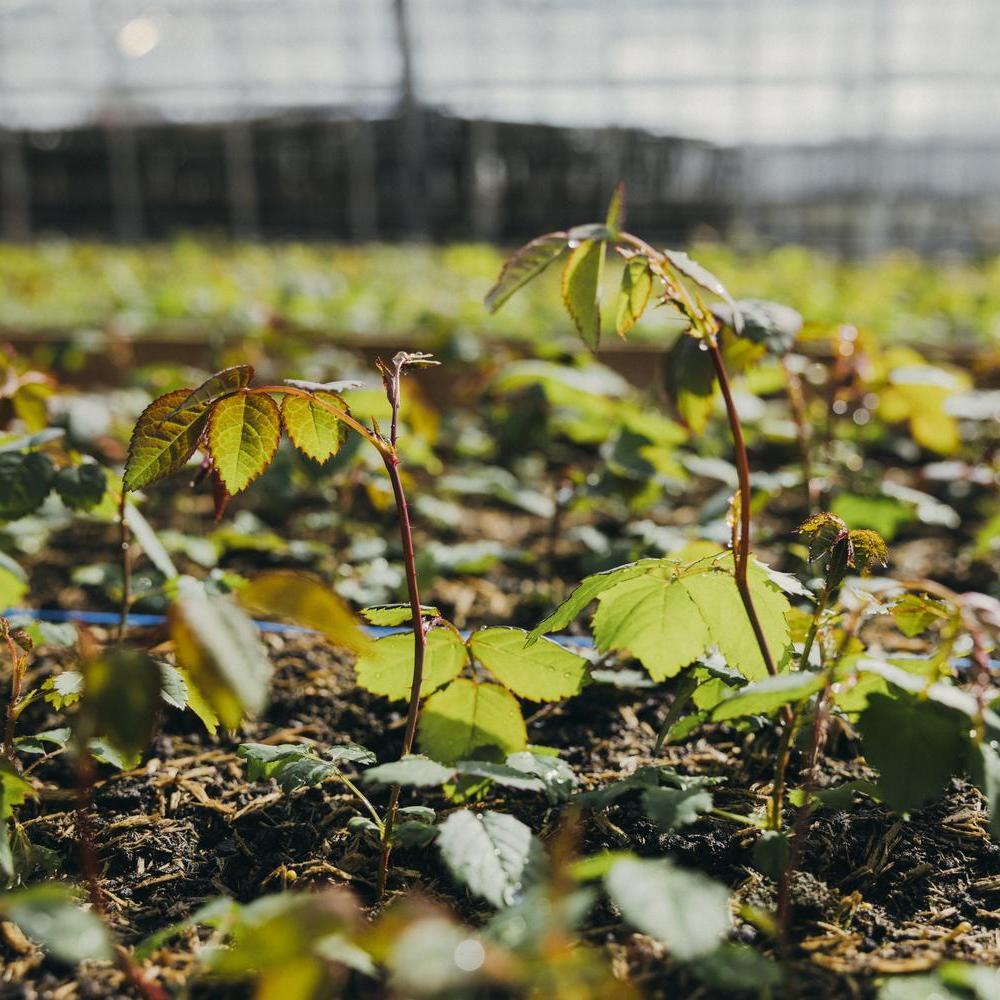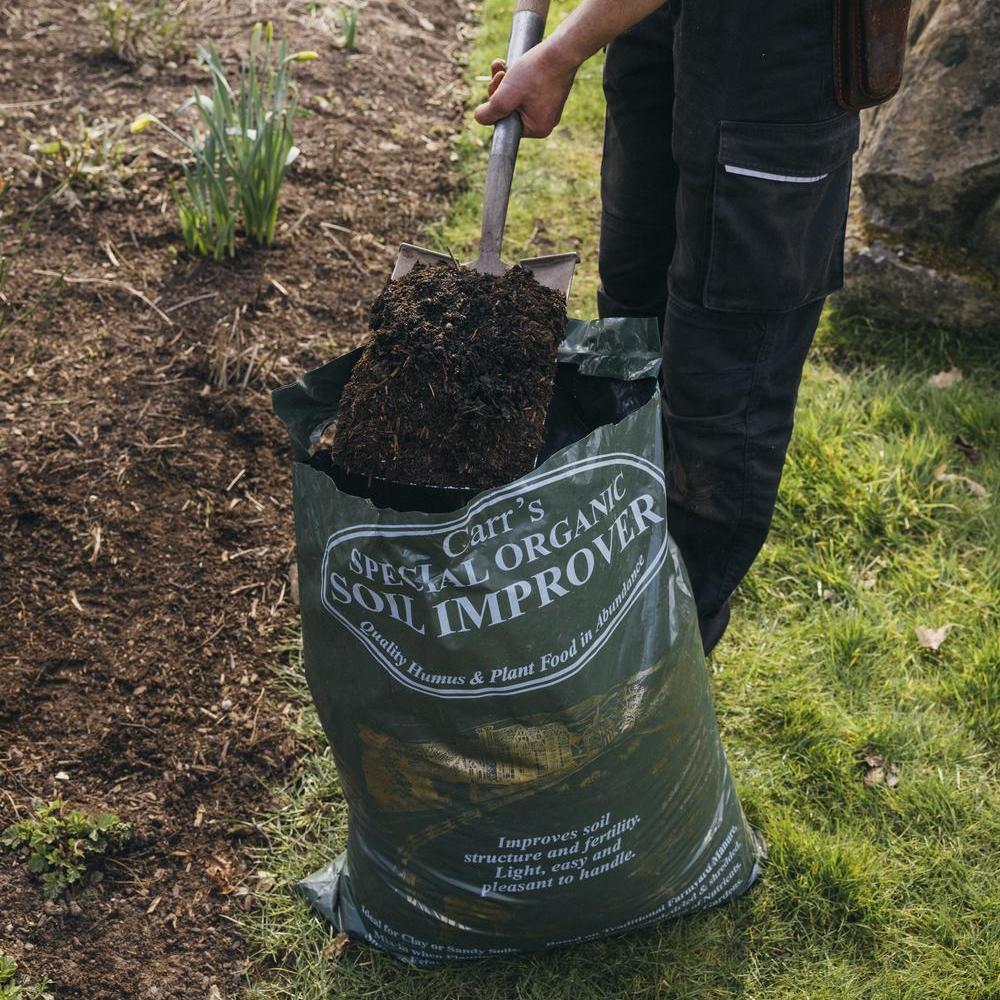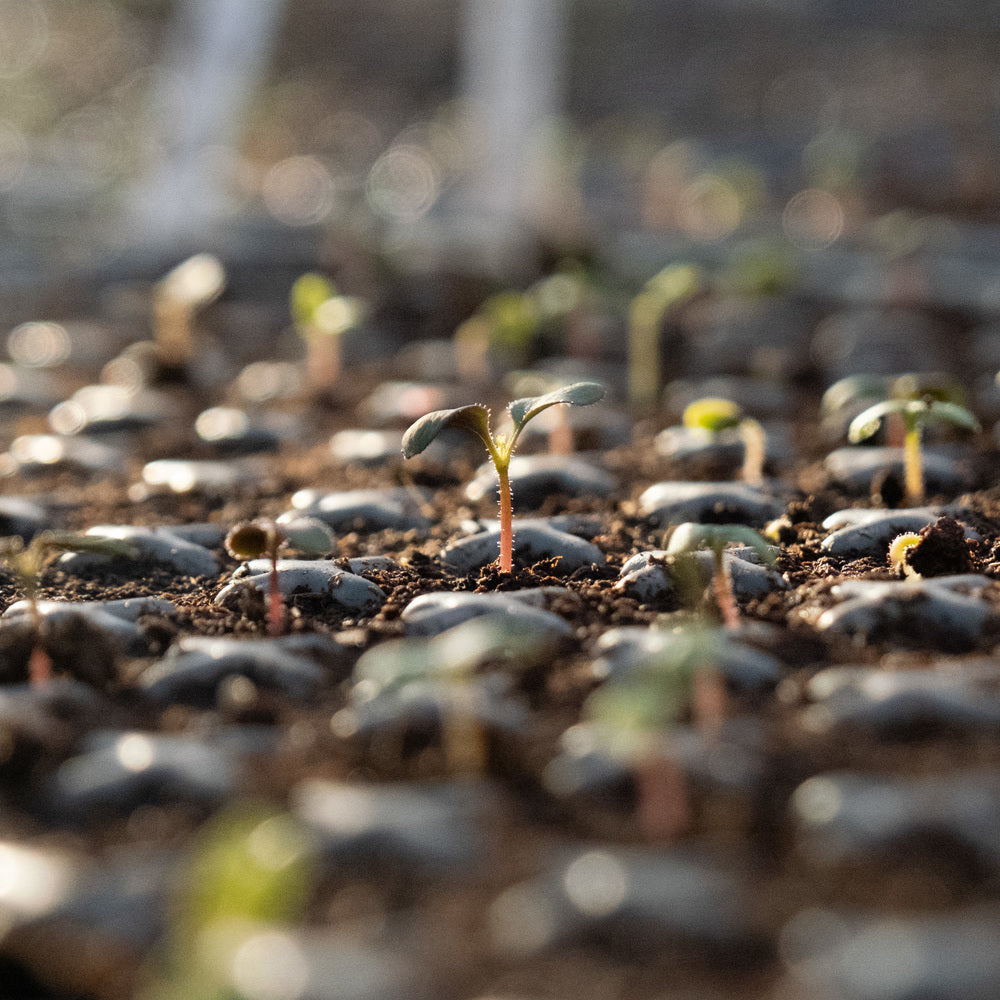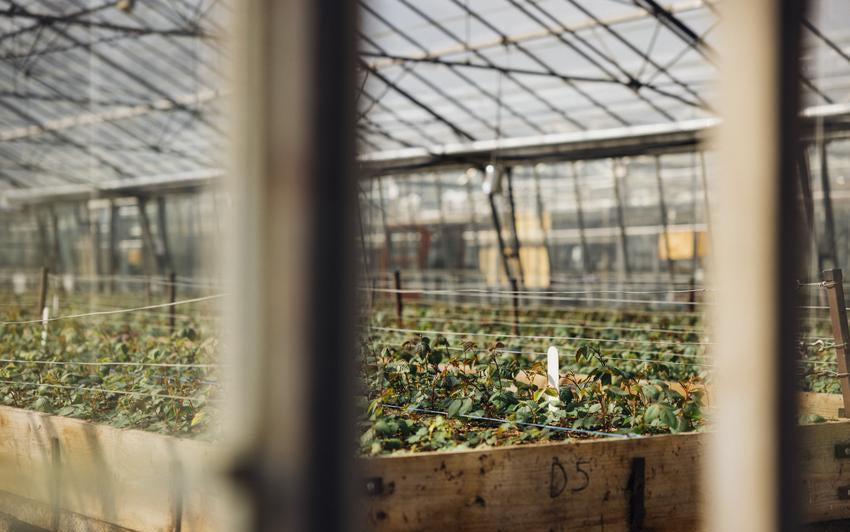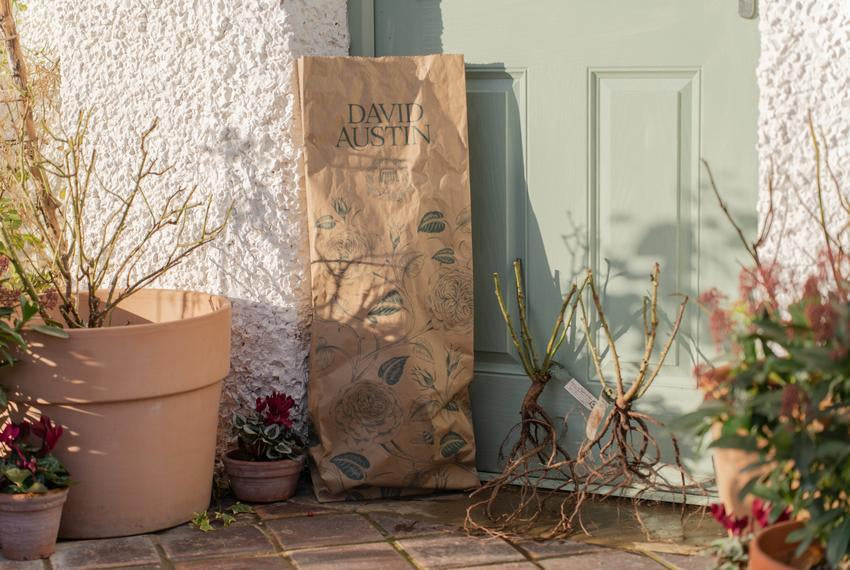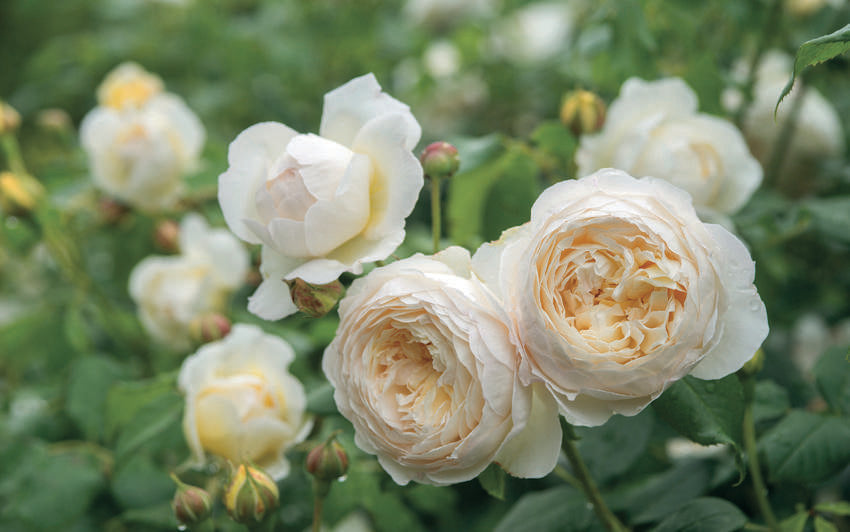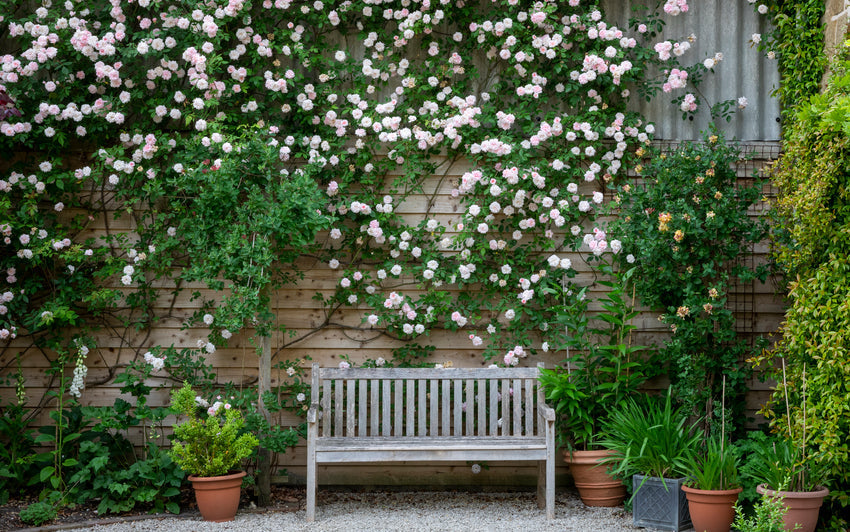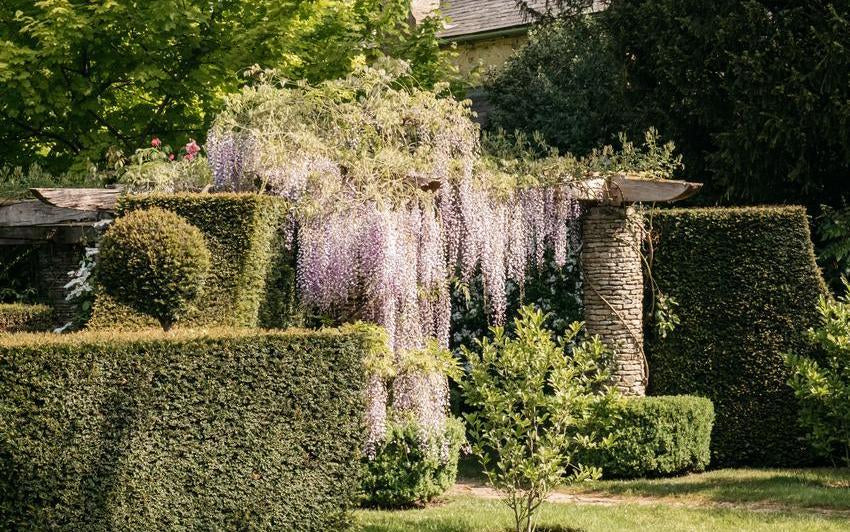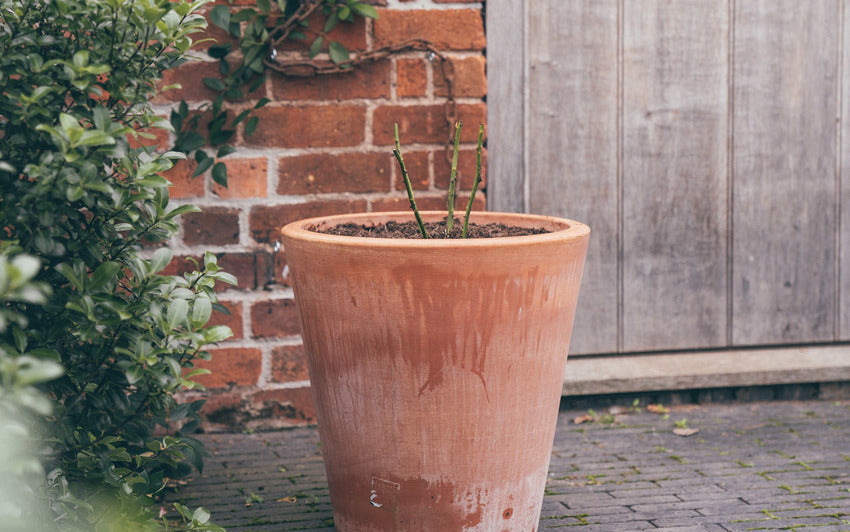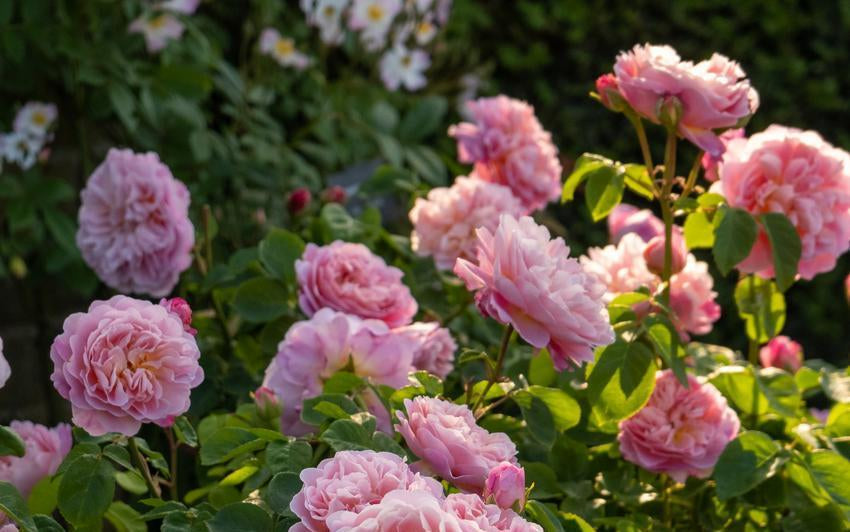Why We Are Peat Free - And How You Can Be Too
In recent years, many gardeners have begun to rethink the compost they use, and with good reason. Britain’s peatlands are ancient, irreplaceable places, storing vast amounts of carbon and supporting rare wildlife. Protecting them is one of the simplest and most important ways we can care for the natural world.
Here at David Austin®, we have been working with peat-free compost for well over fifteen years. We now grow and ship every one of our roses in a 100% peat-free medium, and we are delighted with the results. With a few small adjustments, you can enjoy the same success at home.
Understanding Peat-Free Compost
Peat-free blends are made from sustainable ingredients such as bark, wood fibre and coir, a by-product of coconut harvesting. These provide the structure, air and water your rose needs, but they behave a little differently from traditional peat. Learning those differences is the key to thriving plants.
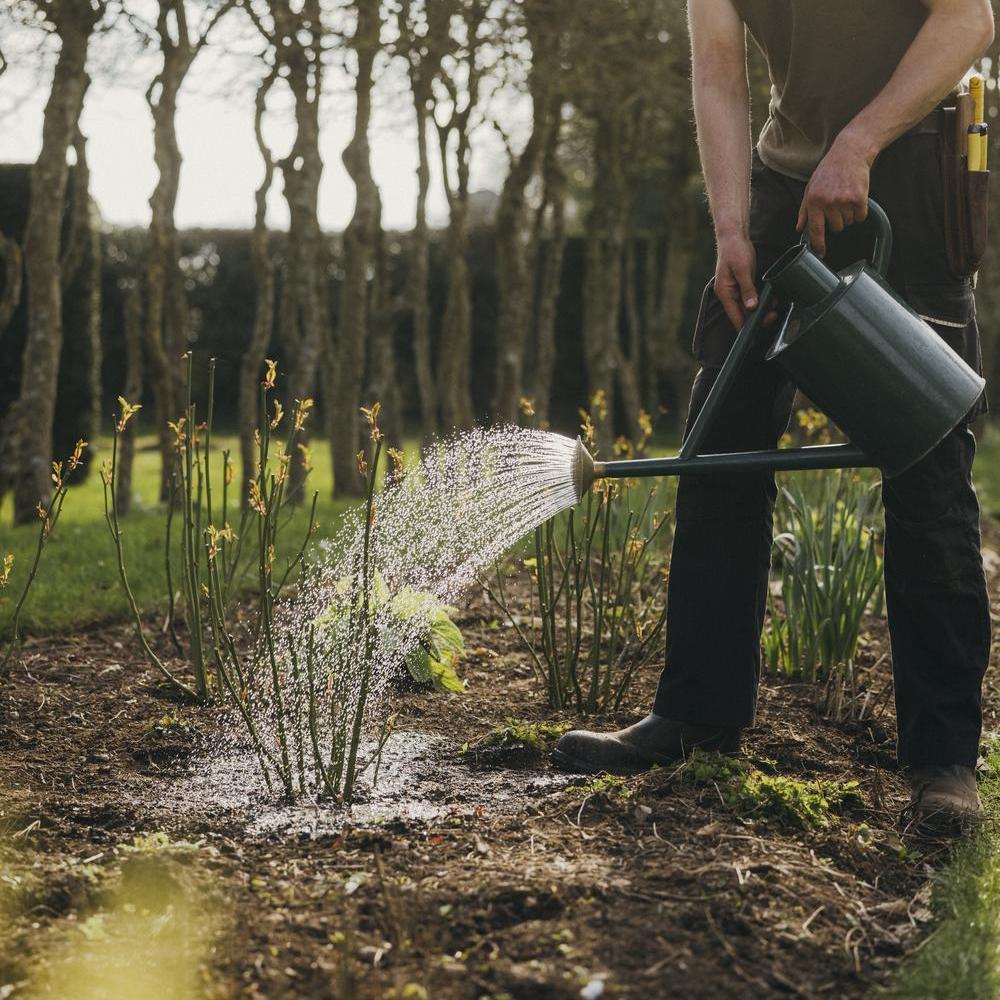 Watering with CareThe surface of peat-free compost can look dry while the roots below are still perfectly moist. Check before watering by feeling an inch or two beneath the surface, or by lifting the pot. Try to avoid letting the compost dry out completely in summer, as some of its materials can be slow to re-wet. A steady rhythm of little and often is far better than the occasional soak, which can wash valuable nutrients away.Learn more
Watering with CareThe surface of peat-free compost can look dry while the roots below are still perfectly moist. Check before watering by feeling an inch or two beneath the surface, or by lifting the pot. Try to avoid letting the compost dry out completely in summer, as some of its materials can be slow to re-wet. A steady rhythm of little and often is far better than the occasional soak, which can wash valuable nutrients away.Learn more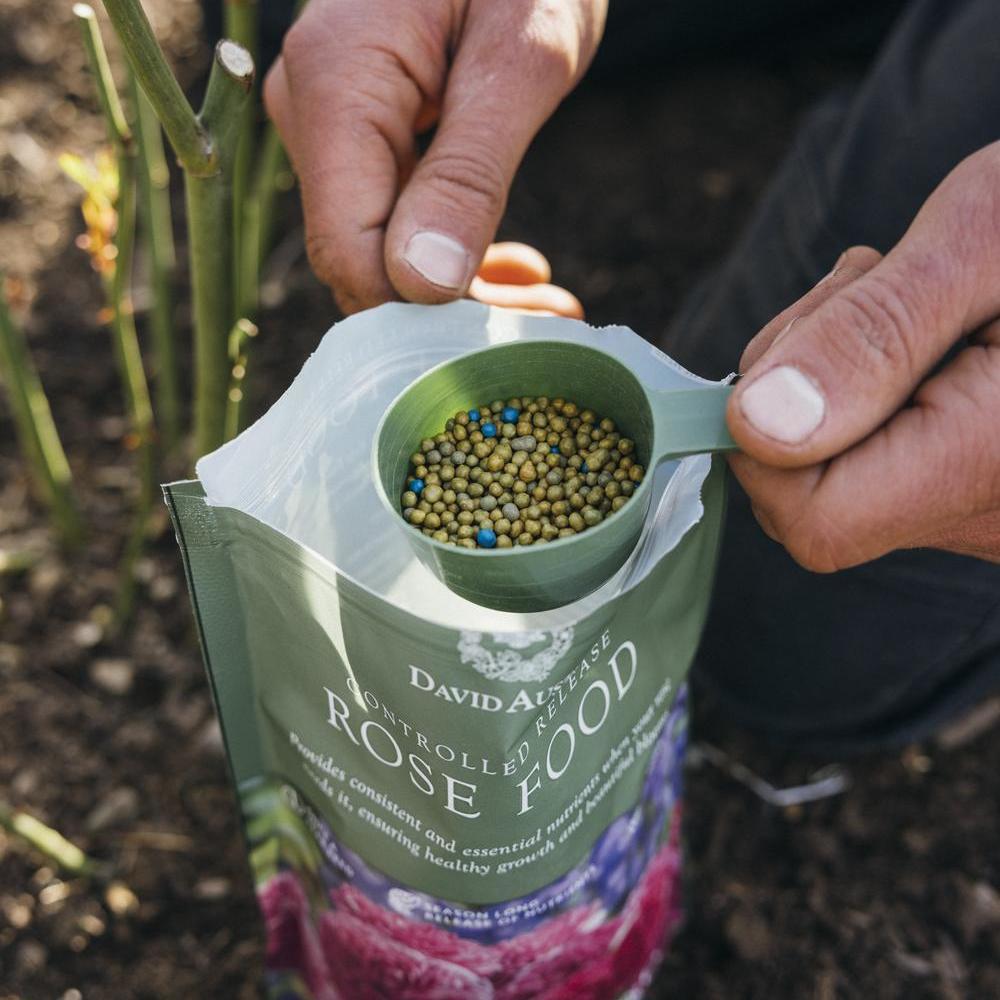 Feeding for Flower and LeafMost good-quality peat-free compost will contain enough food to help your rose settle in, with some fertiliser designed to release slowly over the season. Beyond that, a regular feed will keep the plant strong and flowering freely. Liquid seaweed is an excellent choice, or you may prefer a specialist rose feed that fits your routine.Shop Feed
Feeding for Flower and LeafMost good-quality peat-free compost will contain enough food to help your rose settle in, with some fertiliser designed to release slowly over the season. Beyond that, a regular feed will keep the plant strong and flowering freely. Liquid seaweed is an excellent choice, or you may prefer a specialist rose feed that fits your routine.Shop Feed
Over time, the woody elements in peat-free compost naturally settle. Once a year, add a layer of mulch to keep the roots cool and moist and to suppress weeds. Every few years, re-pot into fresh compost so that the roots continue to have good drainage and air.
Choosing the Right Bag
When buying peat-free compost, look for the Responsible Sourcing Scheme label to be sure it has been produced with care for the environment. Choose fresh bags that have not been stored outside for too long. If the bag feels unusually heavy or waterlogged, it is best to find another.
Growing with a Lighter Touch
By planting and caring for your roses in peat-free compost, you are helping to protect a landscape that has been quietly serving us for centuries. With a little attention to watering, feeding and refreshing the compost, your roses will flourish as beautifully as ever, while you know you are gardening with a lighter touch on the earth.
BLOOM Is Our Promise to Grow Responsibly
For people, for the planet, and the future generations of gardeners. Rooted in care and guided by purpose, BLOOM brings all our social and environmental commitments under one thoughtful plan. As growers of natural products, we recognise our responsibility to nurture the environment. We are continually working to strengthen our responsible decision-making, using our business as a force for good.

